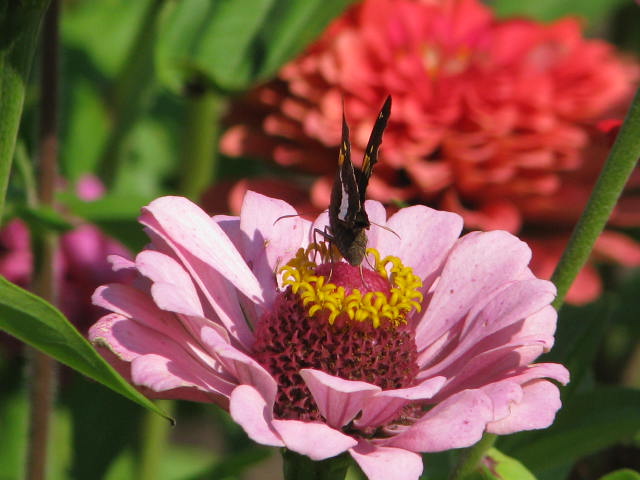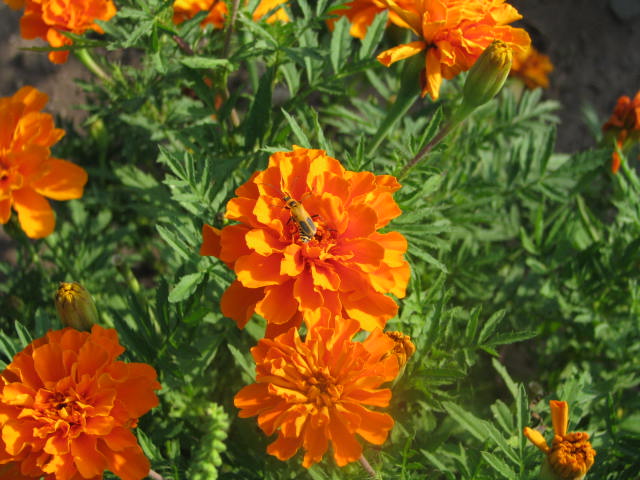Margaret Murphy
Horticulture Educator for Chippewa, Dunn, & Eau Claire Counties
UW-Madison Extension
I always enjoy seeing bees buzz around my flowers and fruit tree blossoms. I know they are busy gathering food but they are also providing an essential service to the planet –pollination. Worldwide, an estimated 87% of flowering plants rely on animals—mostly insects—for pollination. Many of our food crops are partially or fully reliant on insect pollinators to produce fruit (DATCP Wisconsin Pollinator Protection Plan). A rather impressive service pollinators provide.
Pollinators are attracted to plants by visual or chemical cues. Flowers with brightly colored petals will attract both insect and bird pollinators. The color, however, may influence which type of pollinator you will attract. For example, white, blue, yellow, and purple flowers will attract bees while orange, red, yellow, and purple flower colors will help bring butterflies to your garden.
Don’t forget nighttime pollinators. For instance, many moths are nocturnal pollinators. Night flowering plants attract pollinators largely by their scent. Perhaps you have noticed that most evening and nighttime flowering plants have white flowers. These plants put more of their energy into fragrance production than bright color. For more information on nocturnal pollinators, see The Night Shift: Moths as Nocturnal Pollinators, Xerces Society.
Here are a few tips to provide a pollinator friendly habitat. Plant a mixture of flowers that offer a variety of colors, fragrances, shapes and sizes throughout the growing season. Include in your landscape plants that open their flowers in the evening or at night. For more information on plant selection, see Pollinator Gardens: Plant Selection and Garden Care, UW Madison Extension; Pollinator-Friendly Native Plant Lists, Xerces Society.
Limit the use of pesticides. Unfortunately, many of the insecticides we use in our home gardens prove toxic to our beneficial insects as well as the pests. Even some products approved for organic gardening can be harmful to bees. If possible, stay away from the use of pesticides all together. Look for cultural and mechanical practices to control garden pests.
If pesticides are used, read and follow the product label. Pay particular attention to the Environmental Hazard statements, which will list animals that may be harmed from an application of that product. Avoid applying insecticides during windy conditions or on plants that are blooming. Choose low impact insecticides. To learn more, see The risks of pesticides to pollinators, University of Minnesota Extension.
June 19-25, 2023 is National Pollinator week. Take a moment to marvel at the work our pollinators do every day that allows us the beauty and bounty of summer flowers and fruits. To learn more, visit the Wisconsin Celebrates Pollinator Week webpage.
Have a garden question, visit https://hort.extension.wisc.edu/ask-a-gardening-question/ or contact your local County Extension office.






